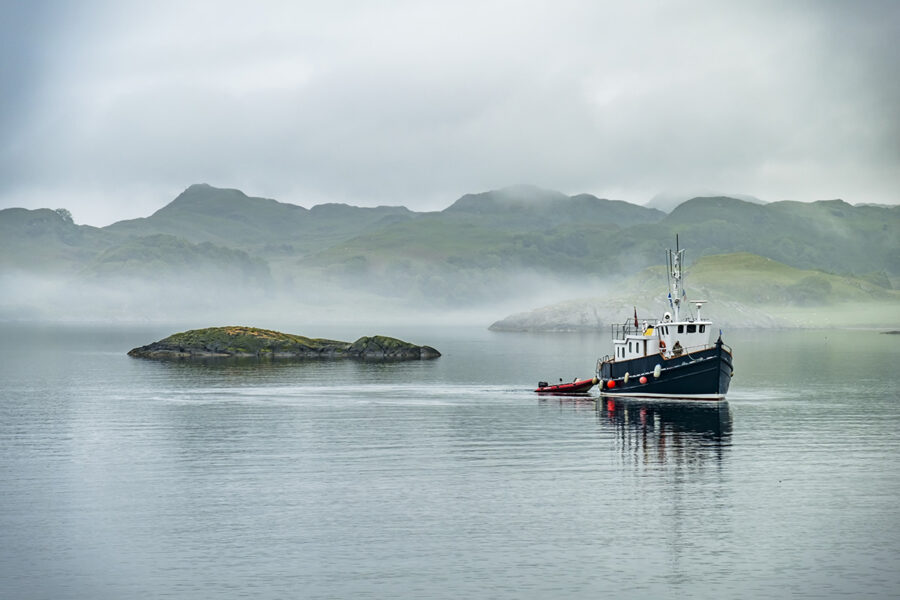Mairi Gougeon, the cabinet secretary for rural affairs, has confirmed that the planned changes to timetables for developing Fisheries Management Plans (FMPs) in Scotland, consulted on in October, would go ahead.
Answering questions in the Rural Affairs and Islands Committee, she told MSPs: “Development of the FMPs has been complex and time-consuming. It is better to take more time and get them right. The delay will allow better FMPs to be developed.”
The delays to the publication of the FMPs, agreed by ministers from all four UK nations, saw considerable criticism from many NGOs, which argued that delay would see continued lack of management, or mismanagement, of Scottish fish stocks – a view that the cabinet secretary rejected.
“I absolutely refute suggestions from NGOs about current lack of management,” she said. “We have a suite of management measures already. The FMPs do have specific obligations, but in general will make the current work we are undertaking more transparent. FMPs are an extra tool for us to use.”
Several MSPs asked about the reasons for the delays, and sought reassurances that there would not be further extensions to deadlines in future years. Committee convenor Finlay Carson, asking for confirmation that the new timetable would be adhered to, asked simply: “Where did it all go wrong?”
Green MSP Ariane Burgess, expressing the concerns raised by NGOs – and asking for the government, at this late stage, to look at regional or ecosystem plans, rather than single-species FMPs – also suggested that current enforcement and monitoring of fishing activity needed to be improved.
She also voiced the frustrations of NGOs that the current system for discussing inshore fisheries management did not allow their voices to be heard. “We are signed up as a government to fully protect 30% of the Scottish seabed by 2030, but this hasn’t got through at local level. To be allowed to access quota, or licences, fishermen should be required to undertake training about the new ‘seascape’ that they face,” she said.
Jane MacPherson, head of fisheries management and strategy for the Scottish government, told MSPs: “The FMP timetable was always challenging. We have been used to managing stocks with the MSY approach, but now the FMPs must include the precautionary approach, bycatch and similar issues. It has become apparent when working with Defra, as well as with Scottish stakeholders, that these first drafts were harder than we thought.”
Pressed by MSPs, she confirmed the hope that a full timetable for publication of the 21 FMPs that will be led by the Scottish government could be made available by the end of 2024, ‘but this depends on the other UK administrations’.
The cabinet secretary sidestepped when questioned on the timetable, but reiterated that delay of the FMPs did not mean delay in developing new fisheries management measures in Scotland. “We have FMAC [the Fisheries Management and Conservation Group), the RFIGs. We do take action when needed outside of the FMP framework – a good example are the measures we have introduced relating to regulating inshore potting.”
Scottish Fishermen’s Federation: ‘Important to get them right rather than get them fast’
Of the 11 public responses received to the short consultation on the FMP timetable, just two – one from the SFF and one from the SCFF – represented fishing industry views. The vast majority of other responses were from environmental NGOs, all expressing their concern at the delays, and arguing, in the main, that FMPs were ‘urgently needed’ to allow improved conservation of marine ecosystems, particularly inshore.
The SFF response made clear that it was providing a considered view on behalf of all member associations, saying: “SFF fully supports this proposal, as it is important to ensure that the FMPs are done well rather than done quickly. We strongly support taking sufficient time to do this work thoroughly, and will be looking to collaborate with the government in their work on these FMPs.
“It is important to recognise that Scotland is not without fisheries management, despite formal FMPs not being in place. We already have strong and well-informed fisheries management in Scotland, and the FMPs will build on this. It would be wrong to think that there is currently an absence of management.”
The SCFF response highlighted its concerns about the need for improved inshore management, and cautioned that delays to FMPs should not be allowed to delay much- needed reform for the inshore fleet.
Speaking to FN after the hearing, SFF chief executive Elspeth Macdonald said: “The FMPs will set the tone for years to come, so it’s important to get them right rather than get them fast. And as the cabinet secretary made clear, there is robust management already in place.
“Perhaps if eNGOs didn’t cause government officials to spend so much time dealing with their endless Freedom of Information requests and legal challenges, they could have made faster progress.”
This story was taken from the latest issue of Fishing News. For more up-to-date and in-depth reports on the UK and Irish commercial fishing sector, subscribe to Fishing News here or buy the latest single issue for just £3.50 here.
Sign up to Fishing News’ FREE e-newsletter here.








